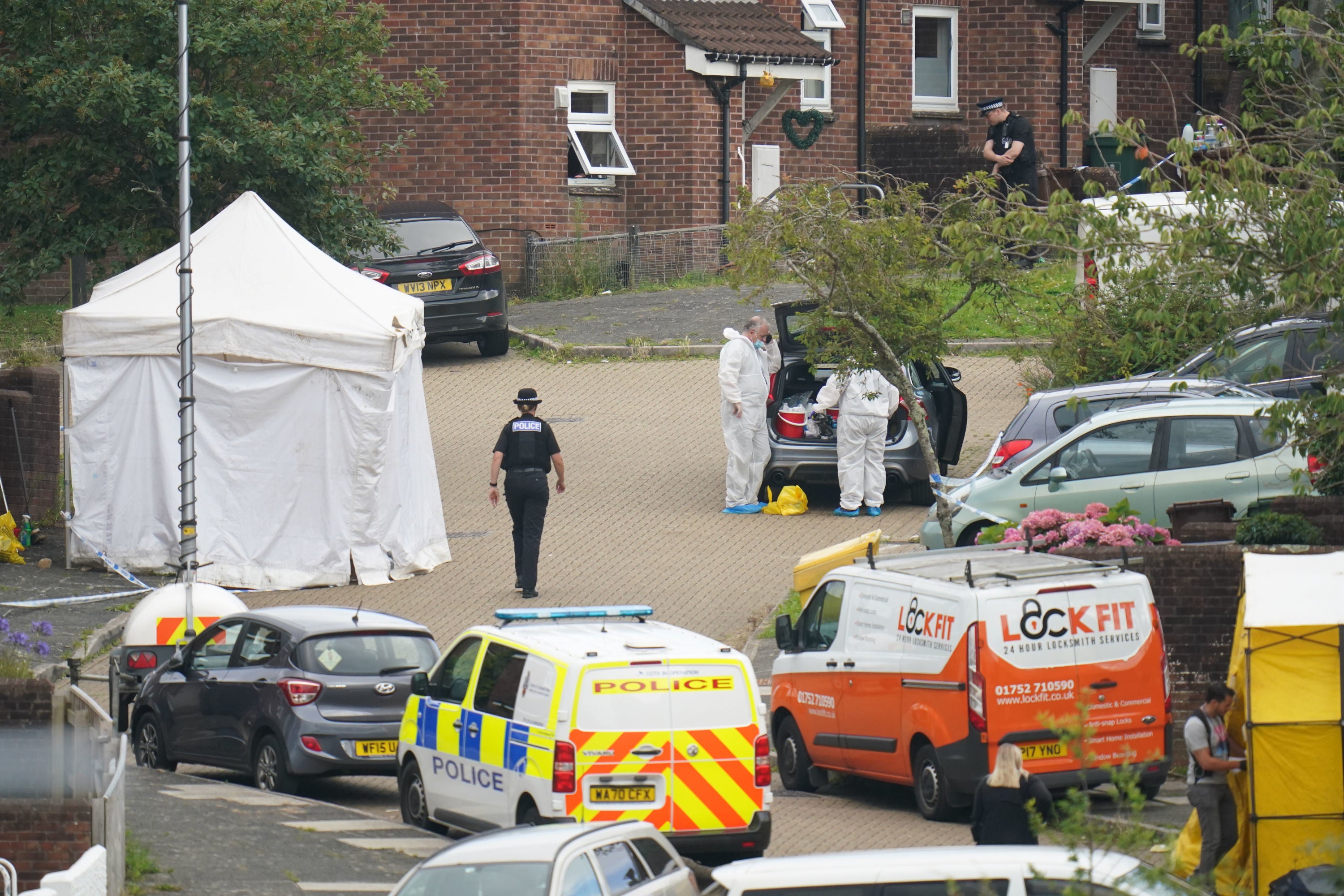Guns returned to dozens of domestic abuse suspects, police data shows six months on from Plymouth attack
Quarter of the 164 firearms licences handed back between 2019 and 2021 were given to people accused of domestic abuse

Dozens of guns have been returned to domestic abuse suspects in the past three years, police data has revealed six months after a deadly shooting in Plymouth.
A BBC investigation found more than a quarter of licences returned between 2019 and 2021 went back into the hands of people accused of domestic violence.
Forty-one of the 44 UK police forces that responded to the broadcaster’s Freedom of Information (FoI) request revealed a total of 164 firearms licences were returned during that period.
Of these, 43 were handed back to people who faced allegations of domestic abuse – although it is not known how many were later convicted of the offence.
Farah Nazeer, chief executive of Women’s Aid, told the BBC the figures showed an “inexcusable tolerance” of abusers as she called for an automatic ban on returning gun licences to those accused of domestic abuse.
The statistics come after Jake Davison, 22, shot his own mother and four others dead during an attack in Keyham, Plymouth, in August – just weeks after having his confiscated shotgun and licence returned.
His father Mark Davison recently revealed he told police in 2017 that his son should not have a gun.
Davison, whose social media usage suggests he was obsessed with the misogynistic “incel” movement, initially applied for a shotgun certificate in July 2017 and was issued a five-year licence in January 2018.
He legally purchased a gun two months later, according to the Independent Office for Police Conduct (IOPC).
His gun and certificate were seized by Devon and Cornwall Police in December 2020 after he admitted assaulting two teenagers in a park.

However they were returned to him in July 2021 following a review by the force’s firearms licensing department after he completed an anger management course.
The Independent Office for Police Conduct (IOPC) is still investigating how the force approved his application and returned the weapon.
In the wake of the shooting, the Home Office announced police forces in England and Wales would need to check someone’s medical history before issuing a gun licence.
The Home Office said from 1 November all firearms applications must be accompanied by a medical document signed by a practising doctor.
All firearms applications must now be accompanied by a medical document signed by a practising doctor, while the applicants’ social media, financial history and any domestic violence history is also be reviewed.
Police forces provided 17 reasons for guns being revoked to the BBC, including motoring offences, mental health issues, animal cruelty and suspected burglary.
The broadcaster said eight forces refused to provide the reason why 34 of the 164 returned licences were revoked because it could identify individuals.
Ten police forces also did not return any guns between 2019 and 2021 to individuals who had previously had them revoked.
A spokesman for the National Police Chiefs' Council spokesman said: “Any individual who held a firearms licence, which was then revoked, would need to reapply for a new licence.
“Applicants should be fully aware that the reasons a licence was revoked are recorded, and are considered as part of any new application.
“The legal process for anyone seeking a new licence is explicitly defined, and domestic abuse is one of the most serious factors taken into consideration in assessing an application.”
Join our commenting forum
Join thought-provoking conversations, follow other Independent readers and see their replies
Comments


Bookmark popover
Removed from bookmarks